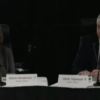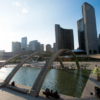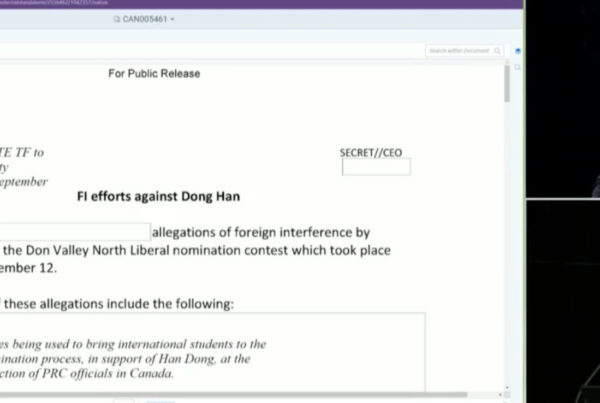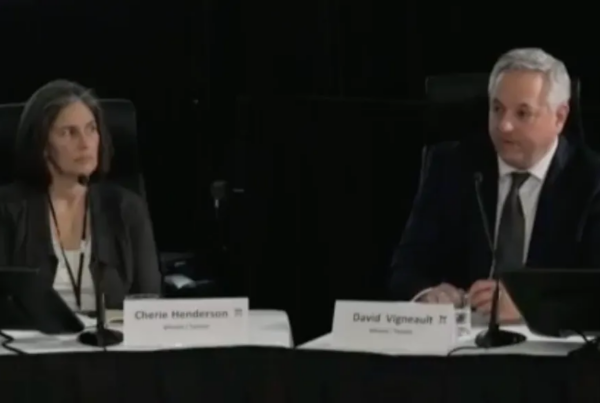The November 13, 2015 attacks in Paris killed 130 and wounded 367 people,[1] representing the worst violence witnessed in France since the Second World War and the highest death toll in Europe since Madrid’s March 2004 highly coordinated commuter train system bombings that took the lives of 191 people.[2] The discovery of a link between the perpetrators and the wave of immigrants pouring into Europe created a ripple effect across Europe, raising the level of nervousness with the ability of European governments to quickly process a possibly high risk migrant population. These concerns were heightened when recent sexual attacks by migrant gangs in various European cities came to light via social media. The mood in Europe has changed from one of welcome to distrust.
Investigations of the well-planned Paris attacks found a passport near the body of one of the suicide bombers who self-detonated outside the Stade de France. The passport in the name of Ahmad Al Mohammad indicated that the holder entered Greece from Turkey on October 3, 2015 passing through Serbia and Croatia.[3] Although the authenticity of the passport remains in question, the fingerprints of the attacker match those registered in Greece and Serbia.
This linked the attackers with the immigration stream and immediately raised concerns around the world with the refugees flowing out of Syria. According to a Serbian security authority, “If the journey and the passport were indeed part of an intricate plot to generate greater fears of the migrants, the scheme is going to plan.” [4] Whether an intricate plot or not, this link has raised valid fears, deepening the divide “between those who see the massive migrant flow as a potential security threat that should be shut down, and those who focus on refugees as being victims of extremism needing protection.”[5]
According to security authorities and terrorist experts, the intent of the Islamic State (IS) is to exacerbate the fears and concerns that permeate the mainstream European and resident Islamic communities. This feeds into the greater strategic intent of IS to incite a backlash against Muslims.[6]
Security concerns were further heightened when a series of reports surfaced that a woman informed police and security authorities that the leader of the Paris attackers entered the Paris region without documents and was accompanied by a multinational group of European and Arab jihadists.[7] A woman identified as Sonia told police that her cousin Abdelhamid Abaaoud said he “was proud of the attack that killed 130 people”[8] and “boasted that he slipped into Europe among refugees from Syria as a part of a team of dozens of militants.”[9] Another report noted that “At least two people involved in the Paris attacks had registered as refugees on a Greek island in the months before they surfaced in Paris.”[10] These reports heightened intelligence and security concerns that the IS was utilizing the ongoing migrant stream as an infiltration route.
The New Year’s Eve attacks in Cologne, when hundreds of sexual assaults were reported by women attending festivities, further complicated the security situation. The alleged perpetrators were reported to be men of Arab or North African appearance1[11] who “broke into groups and formed rings around young women, refusing to let them escape.” There were reports of theft, sexual assault and rape. Similar incidents were reported in other German cities including Hamburg, Frankfurt, Stuttgart, Dortmund, Dusseldorf and Bielefeld.[12] These incidents were not immediately reported by police or the media, which caused the public to question whether there was a cover-up. The Cologne police chief was subsequently fired from his post amid criticisms of the police handling of these complaints.[13] This increased the alienation of the German public and enhanced concerns as to the validity of bringing in a large migrant population over such a short period of time.
Migrants Will Continue to Come
A decade ago, according to the United Nations (U.N.) refugee agency, there were an estimated 38 million displaced people.[14] It is now estimated to be around 60 million.[15] Analysts believe that the number will continue to increase in 2016, as migrants move towards Europe from the Middle East, Africa and as far away as India and Bangladesh.
The situation in Syria continues to escalate despite talks of brokering a peace, as the key belligerent – the IS – is unwilling to come to the table. A further reason for the escalation is Russia’s military intervention in Syria, which is making a deadly conflict deadlier.[16] Russian President Vladimir Putin has stated his intent to defeat the IS.[17] Although Syria’s President Bashar al-Assad has regained much of the territory lost in 2015,[18] his military forces are in no position to regain military control of all of Syria. The situation is further complicated as Russia will neither commit sufficient military ground forces to achieve its aims, nor abandon Mr. Assad. Hence, the outcome will likely be more Syrians displaced by the conflict and fleeing to avoid conscription or being caught up in the ongoing fight.
It is estimated that four million Syrian refugees are registered with immigration organizations, while up to one million are unregistered and already residing in the country surrounding Syria.[19] To complicate matters, the U.N. cut the amount of food aid distributed due to a lack of funding, providing another reason for Syrians to flee to Europe. This migration will likely be augmented by the ongoing fighting between Turkey and Kurdish militants, as well as a continuing war in Iraq that seems to have no end in sight. Further afield, Afghanistan continues to experience an ongoing conflict with the Taliban insurgency and a nascent conflict with acolytes of the IS. The war in Yemen continues unabated and has displaced an estimated one million people.[20] Meanwhile in Africa, conflicts abound in the Sahel and Somalia.
Potential Impact
Germany is grappling with a spectrum of challenges related to their attempts to absorb hundreds of thousands of migrants who have arrived in a short period of time. The mass numbers of unregistered migrants arriving into Germany and other European cities have forced the temporary setup of border controls within the Schengen free travel zone[21] and is causing European countries to debate how they secure their respective borders.
Under the 1951 U.N. refugee convention and under European law, European countries are legally bound to process asylum seekers in the first country in which they arrive.[22]However, this has not been happening as the migrants want to register in the country where they want to live, such as Germany. The surge of immigrants could result in a groundswell of European support to revise the convention, as well as the respective laws pertaining to refugee issues.
German Chancellor Angela Merkel’s government has already backed plans to curb the number of migrants arriving in Germany.[23] Responding to public fears of the suspected role of young men, particularly from Tunisia, Morocco and Algeria – considered “safe” countries[24] – in the New Year’s Eve assaults on women in Cologne, Merkel’s cabinet approved a broader package of restrictions, including limiting the rights of refugees to bring family members to Germany.[25] Merkel’s government has been under intense public and political pressure to react to the loud criticism of her liberal asylum policies.[26]
Overhaul of E.U. Asylum Policies
Both Brussels and Berlin are arguing for an overhaul of European Union (E.U.) asylum policies in response to the overwhelming migration crisis being confronted by European governments. A package of proposals drawn up by the European Commission will call for “permanent obligatory sharing of refugees across the E.U. as a result of scrapping rules that asylum seekers have to lodge their claims in the first member country they enter. The rules, known as the Dublin Regulation, were abandoned by Merkel in September when she promised Syrians asylum in Germany, regardless of where they entered the EU.”[27]
Arguably, the system in place no longer meets the requirements of processing hundreds of thousands of refugees. Meanwhile, Germany, Austria and the Netherlands have argued for a system of Commission-proposed E.U. border guards who would be empowered to overrule member governments in an emergency situation and take control of the borders.[28] This initiative is essentially aimed at Greece, as Merkel’s government is reportedly furious with the Greek government’s handling of asylum seekers.[29]Moreover, many E.U. interior ministers view that the continuing migrant situation has risked the future of the Schengen Agreement due to the reintroduction of “temporary” borders to control the flow of migrants. The situation is dire. One report noted that of the “1.1 million refugees, who entered the E.U. last year, about 90% have ended up in Germany, Sweden and Austria. Sweden has said it cannot cope and has reintroduced border controls. Austria has said it is suspending Schengen.”[30]
Mounting Concerns and Anger
The continuing deluge of refugees has played into the hand of anti-immigrant forces throughout Europe. Marine Le Pen in France, Geert Wilders in the Netherlands and members of the Danish People’s party will move the political stakes to the right. Meanwhile, Eastern European leaders will likely refuse German demands that they accept higher numbers of migrants.
The greatest challenge will be the integration of migrants into Germany, the Netherlands, Austria and Sweden. Costs will likely rise to address housing needs, language and cultural schooling, as well as healthcare expenses to address the needs of the incoming population. These mounting costs will force governments to take a tougher stand to protect their respective national borders.[31] They will also need to face the complex challenge of how best to facilitate the expeditious return of those who are found to be failed asylum seekers and those migrants found to not be bona fide refugees.
The attacks in Cologne dramatically changed the debate about refugees. Public outrage has forced Merkel to backtrack on an open door policy towards those seeking asylum in Germany. Moreover, over two thirds of the refugees are young men, with many lacking language and education skills, and are contending with a cultural reality that is foreign to them. Many do not understand European society and have difficulty accepting the Western culture’s positioning of women. Sweden, which has taken in the most Muslims, has witnessed a sexual assault rate that has skyrocketed. A high number of those convicted of such crimes are immigrants or children of immigrants, underlining a serious failure in socio-cultural integration. [32] Moreover, liberal Europeans fail to recognize or admit this. In the wake of the attacks in Cologne, police authorities attempted to conceal the ethnicity of those coordinating and orchestrating the assaults on women.
Immigration Challenges in Scandinavia
For the largely liberal Scandinavian countries, the assimilation of large numbers of immigrants with very different cultural values could threaten their once globally envied lifestyle.[33] Finnish schools are considered by many as the best, with highly qualified teachers and modern educational facilities. The Norwegians have half the reoffending rate of British jails and Swedish mothers are provided with outstanding maternity benefits.[34] Scandinavian countries are “at the top of every global league from morals to gender equality and happiness.”[35] Although Scandinavian countries are known to have the highest tax rates, their salaries are also higher.[36] For many, Scandinavian countries appear to be the place of opportunity with reputedly the best public services.[37]These countries are economically successful, but are not considered “rapaciously capitalist.”[38]
The recent and dramatic increase in migrants to Europe and beyond, has spawned debates on how to best deal with this surge of numbers. For these stable and prosperous Nordic countries, the issue is how best to assimilate new and very different cultures into their well-managed countries. In Norway, 9.9% of the population is immigrants, in Denmark it is 8.8%, and in Sweden it is 14.1%.[39] These substantial numbers underline the importance of efficiently and effectively assimilating new immigrants into their respective countries.
Due to its lack of capacity to handle the influx of migrants, Norway recently started turning back Syrians from its borders, and introduced new begging laws.[40] The Norwegian government has advertised throughout the Middle East and in Afghanistan that those thinking of venturing to Norway as asylum seekers, should not “consider it a free lunch.”[41]
As the direct and indirect financial costs relating to mass numbers of immigrants entering the country rise dramatically, the Danish government has implemented a new law enabling the “authorities to seize the cash and jewelry of asylum seekers to pay for their resettlement.”[42]
Norway and Sweden face challenges in integrating new immigrants. A 2013 Organisation for Economic Co-operation and Development (O.E.C.D.) report acknowledged that the “unemployment rate for foreign-born Swedish citizens is nearly three times that of the native born-the second worst in the O.E.C.D. after Norway.”[43]
The globalized economy has an impact upon the Scandinavian situation, which will require each country to take a look at its respective generous welfare systems. The price of oil is dropping dramatically; personal tablets have become preferable to paper which is impacting the paper industries; and some of their high-tech companies, such as Nokia, are experiencing difficulties.[44] In addition, there will be pressures to make substantial changes to their educational and health systems to accommodate immigrants. Scandinavian countries are recognized to be liberal and tolerant. However, if Scandinavians intend to carry on their widely respected liberal values, particularly sexual equality, there will be a requirement to confront and challenge the ideas, cultural mores and prejudices of those immigrants who aspire to reside in these nations. It will be necessary that the respective national authorities ensure that those intent on joining their society understand and appreciate the importance of liberal values[45] and education, learning the language and assimilating.
The German-based Pakistani journalist Shamil Shams contends that, “Islamic culture and European norms are not compatible,”[46] arguing that it is “naïve that many Germans believed Muslim refugees would abandon their old views as soon as they arrived here.” Shams further proffered that, “I know many Muslims who have been living in Germany for decades, speak fluent German, yet harbor deep resentment against secularism and Western values.”[47] These issues speak to the need for Germany to develop a thorough integration program[48] that extends beyond culture and language. If governments ignore such realities, they risk seeing the birth of anti-immigrant groups and the potential rise of neo-Nazi parties that garner support through fear mongering.
Infiltration of the Migrant Stream
The events of Paris and Cologne have inspired a new degree of xenophobia amongst nations accepting migrants from North Africa, the Middle East and elsewhere. The Syrian passport found alongside one of the suicide bombers who participated in the Paris attacks, who reportedly posed as a refugee to enter Europe, is a major cause of concern.[49] The February hearings in Washington regarding the threat posed by potential terrorists coming to Canada in its Syrian refugee resettlement initiative, and thus possibly to the continental United States (U.S.), underline the seriousness of these concerns amongst governments. Moreover, there appears to be an inherent distrust in the respective systems that are responsible for vetting refugees.[50] In part, this is based on the knowledge that all 19 of the 9/11 aircraft hijackers entered the U.S. legally with official tourist, business and student visas that were issued prior to their arrival, despite being committed extremists.[51]
Hans-Georg Maassen, head of Germany’s domestic intelligence agency (BFV), advised that the BFV had “received more than 100 tip-offs that ISIS militants are hiding out among asylum-seekers.”[52] This report came a day after German police conducted raids of refugee shelters in Hanover, Attendorn and private addresses in Berlin, looking for suspected Islamist militants.[53] According to one report, three men were arrested.
“One man is wanted for belonging to ISIS by the Algerian authorities who say he was trained in Syria. His wife was also detained, the other man was arrested for having fake ID documents.”[54] Should these suspects be confirmed as IS sympathizers or supporters, this could add fuel to the argument that Merkel’s open door policy towards refugees has facilitated the possible infiltration of terrorists, enabling them to hide in relative security amongst the migrant stream.
German police provided further information, noting that an Algerian couple was arrested on an international warrant initiated by the Algerian authorities on suspicion of belonging to the IS and planning a terrorist attack in Berlin.[55] The couple reportedly entered Germany in late 2015, applying for asylum as Syrian refugees. They utilized the migrant flow to facilitate their infiltration into Europe in the guise of refugees fleeing the Syrian conflict. This methodology was further highlighted when Maassen stated that European authorities have “seen repeatedly that terrorists are being smuggled in, camouflaged as refugees.”[56] He pointed out, “That is a fact that security authorities must always seek to recognize and identify.”[57] Maassen noted that, “We are in a situation which is serious, and we have a high risk that there can be a terrorist attack.” [58]
Growing Security Concerns
In the wake of events in Paris, Cologne and elsewhere, there has reportedly been a substantial increase in enrollment in self-defence courses, particularly amongst women.[59] A gun dealer in North Rhine, Westphalia, claims that sales of weapons have seen a threefold increase since December 31, 2015. Pepper spray is experiencing an increase in sales. Social media expert Felix Beilharz, residing in Cologne, advised that, “There has been an increase of at least 1000% or more in Google search queries for gun permits since January.” When the citizens of the nation are concerned for their own personal safety, the government has failed in its primary responsibility of ensuring the safety of its citizenry. Such a lack of security, be it perceptional or reality, does not bode well for the future assimilation of migrants.
Moreover, when the government and media are seen to be in collaboration to stymie truthful reporting, questions are raised as to their respective credibility and trustworthiness. Dr. Wolfgang Herles, the former head of a public broadcaster Zweites Deutsches Fernsehen (ZDF), advised that freedom of the press was being manipulated by Merkel’s government interests. He said that, “Today, one is not allowed to say anything negative about the refugees.”[60] He further pointed out that “this is government journalism, and that leads to a situation which people no longer trust us.”[61] Many news outlets were found to have avoided publicizing what occurred due to fears of stoking anti-immigrant sentiment[62] and facilitating the far right anti-immigrant agenda. The Cologne attacks were only widely covered by German media after reports started to appear on social media sites, which was days after police authorities had initially reported no major occurrences during New Year’s Eve.[63] Such complicity is most disconcerting.
Implications
For Germany and the rest of Europe, political leaders have failed to articulate a thoughtful and thorough argument for migration that effectively discusses and confronts the concerns, in some cases fear, that abounds regarding security issues, particularly in the wake of the November terrorist attacks in Paris. The failure by politicians and leaders to address the growing nervousness could see a collapse of public commitment to accept asylum-seekers.[64] One report noted that, “Politically, the consensus on refugees between the center left and center right in Germany, which has set the tone for much of Europe’s policy over all, has given way to sharp disagreements over the right answer to mass immigration, with conservatives fleeing in droves.”[65]
Many in Germany are increasingly concerned and frustrated with Merkel’s migrant-supporting government. The situation that was once seen as the politics of generosity and humanity appears to have been replaced by the politics of fear.[66]Merkel appears to have realized the implications of her decision for an open border for asylum-seekers; speaking at an event near Frankfurt, she “admitted the European refugee crisis was ‘out of control.’”[67] She acknowledged in her speech that, “Now all of a sudden we are facing the challenge that refugees are coming to Europe and we are vulnerable, as we see, because we do not yet have the order, the control, that we would like to have.”[68]Moreover, the German Catholic Church acknowledged that there should be a reduction in refugees, predicated on the concerns over fears of a growing xenophobia population. Cardinal Reinhard Marx, chairman of the German Bishops’ Conference, noted that, “As a church we say that we need a deduction in the number of refugees.”[69] He further acknowledged that, “Germany cannot take in all the world’s needy.”[70]
If we could look back to Madrid, London, Paris and now the most recent audacious attack in Brussels we see a lengthening of a list of Islamic extremist targets that not only resonant in their respective countries but Europe as a whole. At present this latest attack claimed by the Islamic State underlines a number of issues for the police and security elements within Europe writ large. From a security point of view it is fundamental for governments to address such threats with a highly coordinated efficient intelligence system as well married to professionally diligent and effective policing. One of the issues drawing from Great Britain’s experience combatting Irish terrorism underlines the importance of constant public vigilance. As a terrorist would say, “I have to be lucky once, you have to be lucky all the time.”
Canada’s Experience
As the Liberal government pressed for the rapid resettlement of 25,000 Syrian refugees, Canadian media reports painted a more realistic picture of resettling such numbers than what is being reported in Europe.[71] The Syrians coming to Canada under the government assisted refugee program are covered entirely by tax dollars in their first year and their needs are met by resettlement agencies in the 36 Canadian cities in which they are being resettled.[72] The selection of government assisted refugees includes those with lower education, less English or French language skills and larger family sizes than those being resettled by private groups[73] as, according to Immigration, Refugees and Citizenship Canada (IRCC), “the needs of this population are higher than originally expected.”[74]It would appear, however, that there was a failure in the selection of these Syrian applications to appreciate that over half of the approved cases listed five to eight people on each application.[75] This adds dramatically to the current housing crunch faced by those assigned to find appropriate accommodation to house larger families within an available budget.
According to IRCC, the education services for the refugees will need to be increased because 67% of the approved applicants do not speak English or French. The delay in language training, with wait lists over one-year long, will complicate the assimilation of the new immigrants. Another issue surfaced by IRCC is that 90 to 95% of the government assisted refugees are reported to have only six to nine years of education and have not finished high school. An estimated 12% of the medical assessments had at least one condition listed, with diabetes, vision or hearing impairment and hypertension as the most common health issues.[76] Extrapolating from this report, the initial estimated cost of undertaking the resettlement of government supported refugees will likely rise.
Canada has a moral obligation to assist those who are vulnerable, who have the ability to adjust and assimilate within a generous nation that believes in the rights and freedoms of individuals. Concomitantly, Canada’s Prime Minister must ensure that Canada is fully vetting all refugees entering Canada to guarantee the safety and security of our nation. The attacks in Brussels further emphasizes the importance of security in these matters.








